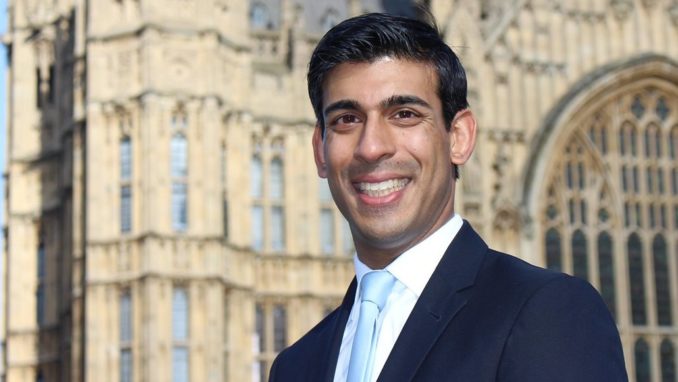
Lockdown rules have made extensive use of the word “essential” in relation to goods, services, journeys and jobs that may be exempted from lockdown strictures. It sounds like an objective standard, but interpreting it is wholly subjective. If my roof is leaking I consider it essential to locate a vendor of tiles. Indeed, it is arguable that the tile vendor, by virtue of his ability to remain in business at all, is the living proof that what he provides is essential – certainly to those whose homes are being flooded. The state, as a collective aggregate, is in no position to tell me I’m wrong.
One of my readers objected to this premise, noting that without some level of state-imposed restrictions we would be sunk. “The right of the individual to do what he/she thinks is in his/her best interests must always be weighed against the interests of the community, especially in times of crisis. Without state-imposed blackouts in 1940/41 the Luftwaffe bombers would have had free reign over our cities.”
The state does have a role
I accept of course that in times of war the government has a positive duty actively to protect the lives of its subjects, but that is a false analogy when we are dealing with a virus. There has been a baffling and fundamental level of disagreement, even between expert scientists, on what it is, how it spreads and how best to contain it.
When an individual considers how best to behave in the face of a virus attack, the process of seeking the optimal balance between health risk and economic survival is also individual. The notion of establishing a collective solution to that conundrum is a logical impossibility, given the number of variables involved.
It is axiomatic that if every individual attached exactly the same weight to each of those variables there would be no need for government to inflict draconian house arrest. The logical conclusion, therefore, is that state-imposed restrictions are bound to violate, in some degree, the first-choice behavioural preferences of millions. That is intolerable in a free society in circumstances when the authorities and their expert advisers are basing their war strategy on little more than guesswork.
Telling it like it is!
As an Illinois judge, the Hon. Michael McHaney, put it in his recent judgement in favour of the businessman who sued the Governor because of his lockdown regime: “The only thing experts will agree on is that all models are wrong, but some are useful.”
The judge made short shrift of the rules themselves, infused as they are with unfathomable absurdity: ‘I won’t get Covid if I get an abortion, but I will get Covid if I get a colonoscopy. A family of six can pile into their car and drive to Carlyle Lake without contracting Covid but, if they all get in the same boat, they will. We are told that kids rarely contract the virus and sunlight kills it, but summer youth programs and sports are cancelled. If I go to Walmart I won’t get Covid, but if I go to church, I will.
As for evidence that the state governor and his family had themselves broken the rules (on the pretext of some lame excuse) he added: When laws do not apply to those who make them, people are not being governed; they are being ruled”.
After months of lax inaction I ventured to my own golf club this week and had a game – but only after signing an agreement not to touch the flagsticks, to putt with the flag still in the hole, not to rake the bunkers (the rakes having been removed anyway) and not to touch any balls other than my own. Two elderly brothers, who happen to live in the same house, then arrived for a game and tried to hire a buggy, but were told that under the new rules of the English Golf Union buggies are under no circumstances to be shared.
All this self-contradictory hogwash makes a mockery of intelligent attempts to advise on conduct during a pandemic. If the authorities in a free society behave like idiots and dictators simultaneously their proclamations will be disregarded – and they will encounter vociferous resistance with implications directly linked to the ballot box.
Picking up the pieces
Now that the incidence of Covid appears to have peaked, Rishi Sunak, the Chancellor, only a few months into his job and having to find useful things to do, is mulling over plans to “kick-start” recruitment, given the expected leap in unemployment levels after lockdown.
Although the universal knee-jerk response to any crisis is to throw buckets of money at it, he must recognise that the global financial world has already tested this process to destruction. Broadly speaking, only two approaches are available
The first is to invent job-creating schemes on, say, infrastructure projects but, unless the chancellor is exceptionally naïve, he will know that such ideas always end with fatal cost overruns – which is what you would expect in the absence of reliable economic evaluation. “It seemed like a good idea at the time” is a poor substitute for providing something that citizens are willing to pay for – with their own money. There are plenty of such needs, of course, but they are always blind-sided by the governmental impulse to impose its own will by identifying what it believes the public really needs.
The key to real growth
The second approach begins by recognising that natural commercial instincts set their own agenda for achieving workable targets and do not need regulatory input from government. Left to its own devices, any business will be guided by the market and achieve optimum results. This is the only viable alternative to a socialist-style “managed” economy with government setting the agenda.
Right now government should be thinking about what to undo. Consider the number of counterproductive regulations that act as a dead weight on enterprise. Small businesses must pay people to comply with this gobbledygook, from health-and-safety claptrap to tax-related form-filling. Those businesses would also benefit from the removal of the stealth taxes that are simply taken for granted as part of the price we pay for goods and services.
Fuel duty, alcohol duty, tobacco duty, sugar tax, vehicle excise duty, air passenger duty, stamp duty, insurance premium tax – they are all doubly pernicious: not only do they cost the public billions every year, they are also insidious manipulators in the style of big-brother, pretending to discriminate in your favour by guiding your purchases to eliminate what’s bad for you and/or society – all characterised by the insinuation that government knows what’s best for us.
This is par for the course in a nanny state, and the state will always take advantage of a supine electorate lacking the wit to recognise when it’s time to rebel against the sheer presumptuousness of state meddling beyond its proper authority.
Come on, Mr Sunak – make a name for yourself!
© Emile Woolf June 2020 (website)
The Goodnight Vienna Audio file



